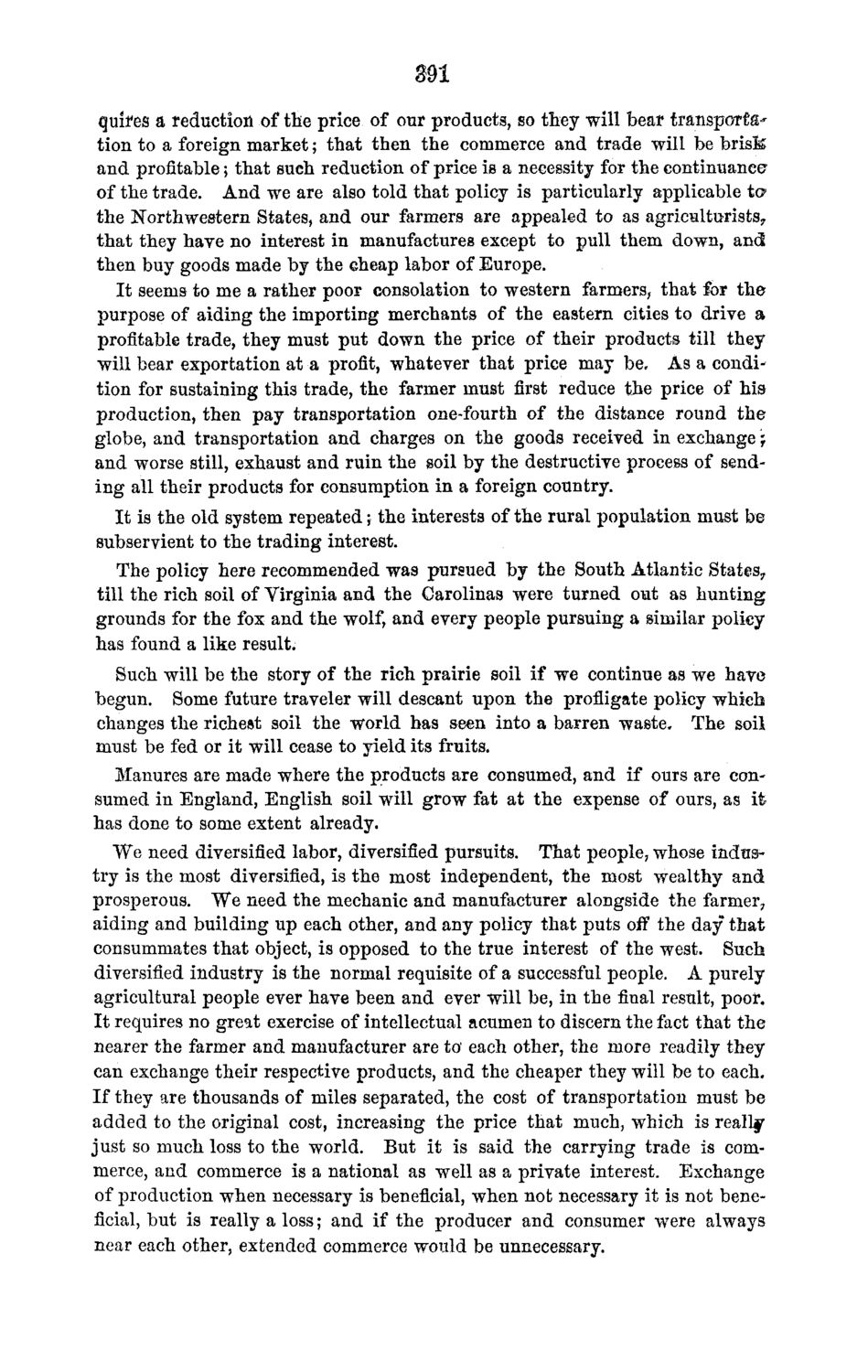| |
| |
Caption: Board of Trustees Minutes - 1870
This is a reduced-resolution page image for fast online browsing.

EXTRACTED TEXT FROM PAGE:
391 (juices a reduction of the price of our products, so they will bear transports tion to a foreign market; that then the commerce and trade will be bris^k and profitable; that such reduction of price is a necessity for the continuance of the trade. And we are also told that policy is particularly applicable to* the Northwestern States, and our farmers are appealed to as agriculturists, that they have no interest in manufactures except to pull them down, and then buy goods made by the cheap labor of Europe. It seems to me a rather poor consolation to western farmers, that for the purpose of aiding the importing merchants of the eastern cities to drive a profitable trade, they must put down the price of their products till they will bear exportation at a profit, whatever that price may be. As a condition for sustaining this trade, the farmer must first reduce the price of his production, then pay transportation one-fourth of the distance round the globe, and transportation and charges on the goods received in exchange; and worse still, exhaust and ruin the soil by the destructive process of sending all their products for consumption in a foreign country. It is the old system repeated j the interests of the rural population must be subservient to the trading interest. The policy here recommended was pursued by the South Atlantic States,, till the rich soil of Virginia and the Carolinas were turned out as hunting grounds for the fox and the wolf, and every people pursuing a similar policy has found a like result. Such will be the story of the rich prairie soil if we continue as we have begun. Some future traveler will descant upon the profligate policy which changes the richest soil the world has seen into a barren waste. The soil must be fed or it will cease to yield its fruits. Manures are made where the products are consumed, and if ours are consumed in England, English soil will grow fat at the expense of ours, as ife has done to some extent already. We need diversified labor, diversified pursuits. That people, whose industry is the most diversified, is the most independent, the most wealthy and prosperous. We need the mechanic and manufacturer alongside the farmer,, aiding and building up each other, and any policy that puts off the day that consummates that object, is opposed to the true interest of the west. Such diversified industry is the normal requisite of a successful people. A purely agricultural people ever have been and ever will be, in the final result, poor. It requires no great exercise of intellectual acumen to discern the fact that the nearer the farmer and manufacturer are to each other, the more readily they can exchange their respective products, and the cheaper they will be to each. If they are thousands of miles separated, the cost of transportation must be added to the original cost, increasing the price that much, which is really just so much loss to the world. But it is said the carrying trade is commerce, and commerce is a national as well as a private interest. Exchange of production when necessary is beneficial, when not necessary it is not beneficial, but is really a loss; and if the producer and consumer were always near each other, extended commerce would be unnecessary.
| |